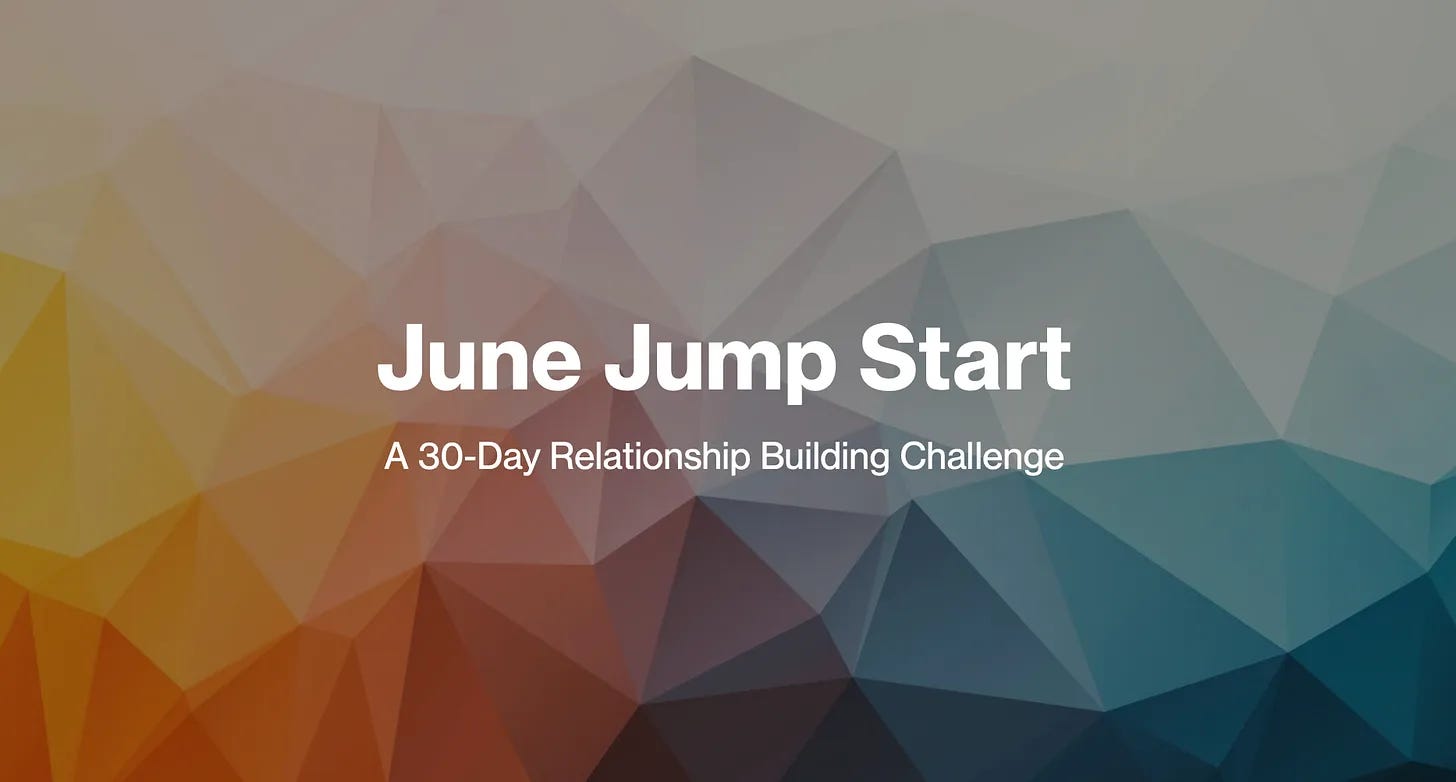June Jump Start Continued
Listening as Superpower
We are approaching the halfway mark of 2025 and using the month of June to fine-tune our skills in tending to our mission-driven relationships: Listen. Appreciate. Ask. We’ll spend the next few weeks diving deeper into each to inspire you to keep going.
This week we’re focused on three habits of listening that supercharge mission-driven relationships.
Listening to Understand. Not to Win.
Listening TO not FOR.
Listening to the feeling.
These are habits that deepen connection. Habits that improve the results of our work because they give us access to a fuller picture of opportunities and challenges.
Research tells us that even when we believe we are focused on listening, we actually process less than 50% of what is said to us. Imagine making a decision based on an evaluation of one of your projects if you were given a memo with 50% of the data missing. Would you feel confident in that decision?
Let’s get to it. Three habits for strengthening listening to improve our mission-driven work.
Listen to Understand. Not to Win.
We’re practiced at listening for our turn to talk. Listening for our opening to make our case, to share our story and to influence the other person to take the action we’ve predetermined is the best path.
Before your next conversation, set an intention to listen to understand. Your role in the conversation is to play back what you hear and ask your partner, “did I get that? what did I miss?” Exercise your skills of synthesizing what you are hearing and playing it back. This is important to give your partner a chance to correct you or to correct themselves. We don’t always say exactly what we mean, so this listening practice gives someone the opportunity to self-correct not just their words, but their intent as well. At the end of the conversation, ask yourself what you’ve learned that will shape your next step.
Listen TO not FOR.
We arrive at most meetings with preconceived ideas of what we will hear. Our brains are prediction machines and they are doing the work of helping us anticipate. That’s beneficial in many ways AND it prevents us from picking up information that doesn’t fit with the pattern we’ve been expecting.
Instead of listening FOR confirmation of the pattern our brain has predicted (e.g., this strategy was a long shot…data is going to show it isn’t working), listen TO what is actually being shared in the moment. To hone this skill, ask yourself what you learned that surprised you. Get curious about what you might hear that doesn’t fit with what you were expecting.
Listen to the FEELING.
In our professional lives, we often steer clear of feelings. We keep the conversation focused on strategy, analysis, action, output and impact. But feelings can be important signals with information worth processing.
In your next conversation, pay attention to what’s going unsaid - the feeling underneath the conversation. Look for verbal tips - phrasing that doesn’t quite fit or seems hesitant - and body language, such as a slight frown or tense shoulders. Once you start paying attention to the unsaid, it becomes easier to spot. Trust your gut. Maybe you’re getting a subtle signal of worry. If that’s the case, name it and ask a question, “I’m getting the sense you might be worried or anxious about something. Is that possible? Could you share a little about what might be concerning you?”
Let’s get out there and work on our listening - tuning in to more of what’s being shared with us than the 50% most people walk away with. Our colleagues will feel more deeply connected to us, more engaged in our work, and we’ll gain insights that improve our results.


